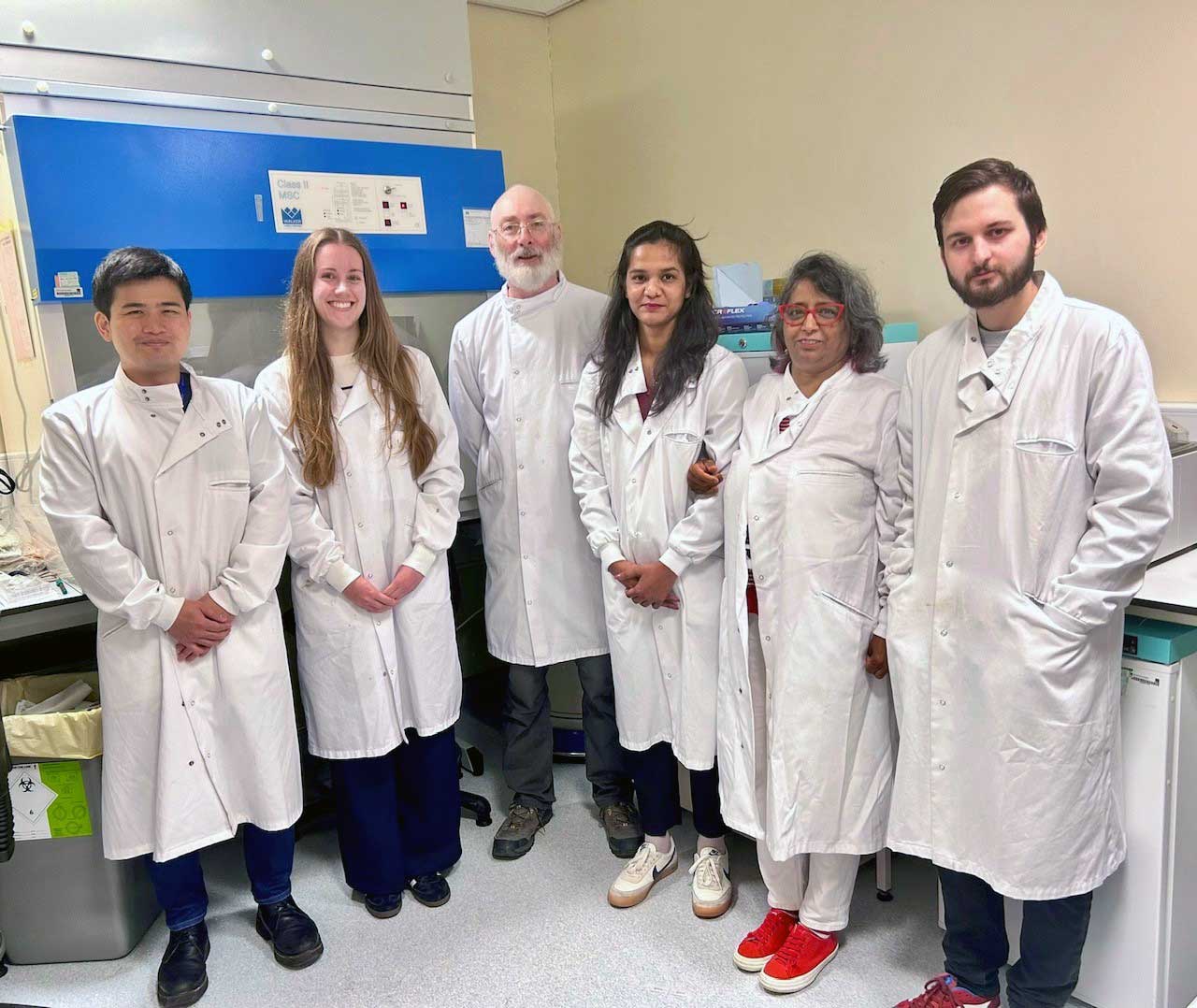Tuesday, 01 October 2024
A team of scientists at the University of Nottingham, have uncovered how the parasite that causes malaria orchestrates their cell division – which is key in enabling the parasite to transmit this deadly disease.
In a new paper, published in PLOS Biology, a team of scientists at the university, along with collaborators across the globe, show how they have uncovered key regulators of how malaria parasites manage their cell division.
Malaria is a major public health issue in many developing parts of the world. It is transmitted by female mosquitoes which ingest the parasites when they bite. Malaria was responsible for approximately 608,000 deaths in 2022 (WHO) and is caused by a single-celled parasite termed Plasmodium, that invades the liver and red blood cells.
This new research is led by Professor Rita Tewari from the School of Life Sciences at the university and Professor Mathieu Brochet at the University of Geneva. It aims to unravel the atypical mode of multiplication of the malaria parasite with particular focus on the developmental stages of the parasite within the mosquito in the hope of finding new therapeutic targets.
It is clear by looking at COVID-19, that controlling the transmission of parasites is equally crucial in addition to controlling the disease. Hence, to have fundamental knowledge of how the parasite succeeds to divide within the mosquito and what switches it uses will help to design intervention targets.
“One of the unusual cell divisions is seen in male sex cell formation. Recently, Professor Tewari’s team of researchers have focused on some proteins called kinases. Kinases are a family of proteins which contribute to the control of nearly all cellular processes and have already become major drug targets in the fight against cancer and other diseases. However, studies on these kinases and how they are involved in cell division in Plasmodium species are scarce.”
The group have recently characterised two kinases: ARK2 and NEK1, which they have published details of how they contribute to parasite multiplication especially during transmission stages within mosquitoes.
Professor Tewari adds: “Kinases are the best drug targets and their role in parasite transmission is important to unravel. The two studies here are a step in that direction.”
The previous study detailing more on this discovery can be found in Nature Communications.
The scientists involved in this study were Mohammad Zeeshan and Sarah Pashley from Professor’s Tewari’s lab at Nottingham. The First author on the paper Zeeshan said: “NEK1 is a functional protein that plays a crucial role in different stages of Plasmodium development. Our study reveals that the depletion of NEK1 protein from Plasmodium arrests its cell division and sexual development. This indicates that NEK1 could be a potential drug target, not only to stop the malaria disease but also its transmission.”
The latest study in PLOS Biology can be found here. The previous study detailing more on this discovery can be found in Nature Communications.

Story credits
Picture caption - Prof Rita Tewari's lab, L-R:
Ryuji Yanase, Sarah Pashley, Declan Brady, Akancha Mishra, Rita Tewari and Igor Blatov
Both of these studies have been produced collaboratively with other scientists both within and outside the UK highlighting the global effort to understand this disease and the process of cell division. Such collaborations have been made with:
- Professor Mathieu Brochet, University of Geneva, Switzerland;
- Eelco Tromer, University of Groningen, the Netherlands;
- Karine Le Roch, University of California, USA;
- Iva Tolic, Ruđer Bošković Institute, Croatia.
- David Ferguson, Sue Vaughan Oxford Brookes University, UK
- Arnab Pain, KAUST, Saudi Arabia;
- Professor Tony Holder, Francis Crick Institute London, UK;
More information is available from Professor Rita Tewari from the School of Life Sciences at rita.tewari@Nottingham.ac.uk or Charlotte Anscombe, Media Relations Manager in the Press Office at the University of Nottingham, on +44 (0)115 74 84417, charlotte.anscombe@nottingham.ac.uk
Notes to editors:
About the University of Nottingham
Ranked 97 in the world and 17th in the UK by the QS World University Rankings, the University of Nottingham is a founding member of Russell Group of research-intensive universities. Studying at the University of Nottingham is a life-changing experience, and we pride ourselves on unlocking the potential of our students. We have a pioneering spirit, expressed in the vision of our founder Sir Jesse Boot, which has seen us lead the way in establishing campuses in China and Malaysia - part of a globally connected network of education, research and industrial engagement.
Nottingham was crowned Sports University of the Year by The Times and Sunday Times Good University Guide 2024 – the third time it has been given the honour since 2018 – and by the Daily Mail University Guide 2024.
The university is among the best universities in the UK for the strength of our research, positioned seventh for research power in the UK according to REF 2021. The birthplace of discoveries such as MRI and ibuprofen, our innovations transform lives and tackle global problems such as sustainable food supplies, ending modern slavery, developing greener transport, and reducing reliance on fossil fuels.
The university is a major employer and industry partner - locally and globally - and our graduates are the third most targeted by the UK's top employers, according to The Graduate Market in 2024 report by High Fliers Research.
We lead the Universities for Nottingham initiative, in partnership with Nottingham Trent University, a pioneering collaboration between the city’s two world-class institutions to improve levels of prosperity, opportunity, sustainability, health and wellbeing for residents in the city and region we are proud to call home.
More news…